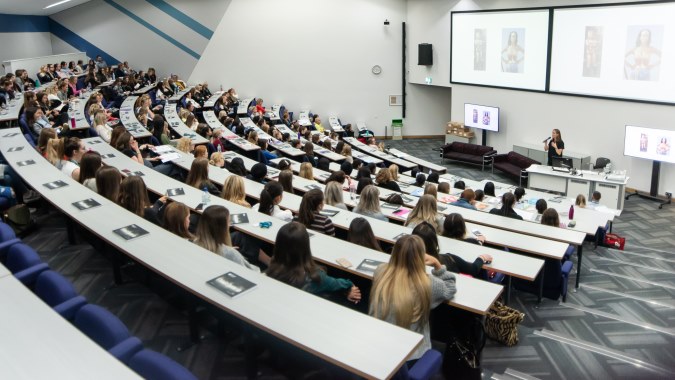
North East LEP supports conference aimed at inspiring next generation of female leaders
Hundreds of schoolgirls from across the region gathered at Northumbria University on Monday 16 September to attend Newcastle High School for Girls (NHSG), one-day biennial North East Women (NEW) Leaders Conference.
Supported by the North East Local Enterprise Partnership through its North East Ambition initiative, the conference brought together female leaders from both within and outside the region to share their knowledge and experience with the aim of challenging gender inequalities and inspiring young women to take a leading role in whatever career or profession they choose.
Michelle Rainbow, Skills Director at the North East LEP, said: “This event provided a great opportunity for young women to hear first-hand about the career journeys of exceptional, hard-working and brilliantly successful females.
“We want all young people to be ambitious about the career opportunities that await them, no matter what their background or gender. Through our North East Ambition programme, we’re supporting schools and colleges across the region to offer a range of high-quality careers activities and experiences and achieve the government’s Good Careers Guidance Benchmarks.
“North East Ambition also links schools and employers more closely together, to identify and meet the skills demands of the future and support our aim of driving an uplift of 100,000 more and better jobs by 2024.”
Speakers at the event included Ann Francke, Chief Executive of the Chartered Management Institute; Debbie Edwards, CEO of FDisruptors; and Sarah Glendinning, Regional Director of the CBI.
The young delegates attended a series of Power Up Workshops offering tools to boost the girls’ futures, focusing on areas such personal branding, jargon busting and getting the best out of people. They also explored what leadership looks like now and in the future, and how they can develop their own personal authentic leadership attributes.
The North East LEP’s North East Ambition programme aims to ensure all North East schools and colleges achieve the government’s Good Career Guidance Benchmarks by 2024. By doing so, every young person should have access to excellent careers guidance that enables them to identify routes to a successful working life, make more informed decisions about their future and be better prepared for the workplace.
For more information, visit www.northeastambition.co.uk.







